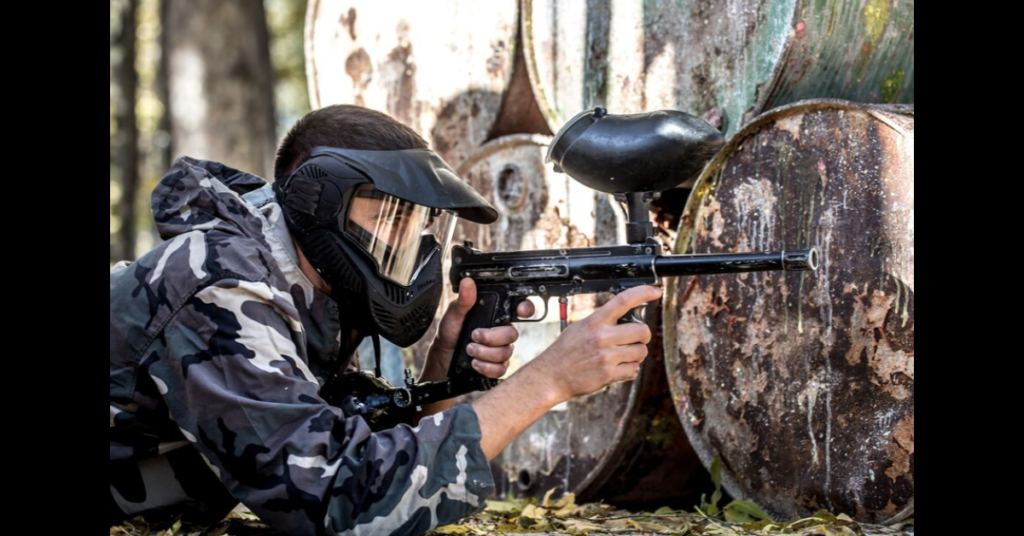On the morning of April 10, 2023, Louisville, Kentucky was rocked by a tragic event that would send ripples of shock and grief throughout the nation. A mass shooting at the Old National Bank left five people dead and multiple others injured, marking one of the deadliest incidents of gun violence in recent years. This article delves into the background of the Louisville shooting, examining the context in which it occurred, the immediate and long-term impacts on the community, and the broader discussions it has sparked about gun violence, mental health, and public safety.
The Incident: A Detailed Account
The Louisville shooting occurred at approximately 8:30 AM at the Old National Bank located in downtown Louisville. The perpetrator, later identified as Connor Sturgeon, an employee of the bank, opened fire in the bank’s main office during a scheduled morning meeting. Sturgeon, armed with an AR-15-style rifle, began shooting indiscriminately, killing five people and injuring several others before being confronted by police.
Victims and Details: The victims of the shooting were identified as Joshua Barrick, 40; Thomas Elliot, 63; Jim Tutt, 64; Deana Eckert, 57; and a 32-year-old male who chose to remain anonymous. Each of these individuals was a part of the Old National Bank’s team and was present in the bank’s conference room at the time of the shooting.
The attack lasted approximately 10 minutes before police arrived on the scene. Responding officers, who were swiftly on site due to the rapid dissemination of information about the shooting, engaged Sturgeon, who was ultimately killed in the confrontation. The police response was marked by a high level of coordination and professionalism, with officers focusing on neutralizing the threat and providing medical aid to the injured.
The Weapon and Motive: Sturgeon used an AR-15-style rifle, a weapon frequently associated with mass shootings due to its high capacity and lethality. The motive behind the shooting remained unclear for some time, with investigators examining Sturgeon’s background, potential grievances, and any signs of mental health issues. Initial reports suggested that Sturgeon may have been experiencing significant personal and professional stress, although a comprehensive motive was not immediately apparent.
Immediate Reactions and Impact
Community Response: In the immediate aftermath of the shooting, the city of Louisville was in shock. The event was particularly devastating because it occurred in a close-knit community and targeted individuals who were seen as integral to the city’s financial sector. The Old National Bank, a prominent local institution, became a focal point of grief and mourning.
Local officials, including Mayor Craig Greenberg and Kentucky Governor Andy Beshear, quickly condemned the violence and extended their condolences to the victims’ families. Emergency services and community organizations mobilized to provide support to those affected by the tragedy, including counseling services for employees and families of the victims.
Media Coverage: The shooting received extensive media coverage, with national and international news outlets reporting on the details of the incident, the victims, and the ongoing investigation. The coverage highlighted the growing concerns about gun violence in the United States and sparked discussions about the need for effective gun control measures.
Political and Social Reactions: Politicians from both local and national arenas weighed in on the shooting, with many expressing horror and calling for action to address the broader issue of gun violence. The shooting reignited debates about gun control laws, mental health support, and the role of law enforcement in preventing such tragedies.
Grief and Memorials: In the weeks following the shooting, the community held memorials and vigils to honor the victims. These events were attended by local residents, community leaders, and family members of the victims. They served as a space for collective mourning and reflection on the impact of the shooting on the community.
The Broader Context of Gun Violence
Gun Violence in America: The Louisville shooting is part of a troubling trend of mass shootings in the United States. The country has experienced a significant number of high-profile incidents in recent years, including shootings at schools, workplaces, and public venues. Each of these events contributes to a broader conversation about gun violence and its impact on American society.
Gun Control Debate: The debate over gun control is a deeply polarizing issue in the United States. Advocates for stricter gun control measures argue that more comprehensive regulations are necessary to prevent mass shootings and reduce overall gun violence. They call for measures such as background checks, assault weapon bans, and limitations on magazine capacities.
Opponents of stricter gun control argue that such measures infringe upon Second Amendment rights and that the focus should be on addressing mental health issues and improving law enforcement responses. They contend that responsible gun ownership should not be undermined by the actions of a few individuals.
Mental Health Considerations: Mental health is a critical aspect of the conversation surrounding gun violence. Many mass shootings have been carried out by individuals who were experiencing significant mental health challenges. The Louisville shooting prompted discussions about the need for better mental health support and early intervention to address warning signs before they escalate into violence.
Law Enforcement and Public Safety: The role of law enforcement in preventing and responding to mass shootings is also a key topic of discussion. The quick response of the Louisville police was praised by some, but there were also calls for a review of protocols and training to ensure that officers are equipped to handle such high-stress situations effectively.
Legal and Policy Responses
Investigations and Legal Proceedings: Following the shooting, investigations were launched to determine the full extent of Sturgeon’s actions, motives, and any potential warning signs that might have been missed. The investigation also sought to uncover any connections between Sturgeon and extremist groups or ideologies.
Legal proceedings in the aftermath of the shooting involved examining the actions of law enforcement and the responses of various government agencies. While Sturgeon’s death prevented a criminal trial, the incident led to a review of security protocols and emergency response procedures.
Policy Changes and Proposals: In response to the shooting, there were calls for legislative action at both the state and federal levels. Some proposed changes included enhanced background checks, restrictions on high-capacity firearms, and increased funding for mental health services. These proposals were met with varying degrees of support and opposition from different political and community groups.
Gun Control Legislation: The shooting renewed debates over gun control legislation, with some advocates pushing for stronger regulations and others advocating for a more balanced approach that addresses both gun rights and public safety. Legislative efforts in Kentucky and at the federal level focused on finding common ground and addressing the root causes of gun violence.
Long-Term Impact on Louisville and Beyond
Community Healing and Recovery: The long-term impact of the Louisville shooting on the community will be felt for years to come. Efforts to heal and recover from the trauma of the event involve both psychological support for survivors and victims’ families, as well as broader community initiatives to address the underlying issues of gun violence.
Community leaders and organizations have worked to provide ongoing support to those affected by the shooting, including counseling services, support groups, and community outreach programs. These efforts aim to help individuals and families cope with their grief and find ways to move forward.
Impact on Public Policy: The shooting has had a lasting impact on public policy discussions related to gun violence and public safety. It has contributed to ongoing debates about the effectiveness of current gun control measures and the need for additional reforms. The incident has also highlighted the importance of addressing mental health issues and improving emergency response systems.
National and Global Reactions: The Louisville shooting, like other high-profile incidents of gun violence, has drawn attention from around the world. It has contributed to the global conversation about gun control and public safety, with international media covering the event and drawing comparisons to similar incidents in other countries.
Legacy of the Victims: The victims of the shooting are remembered through various memorials and tributes. Their lives and the impact of their loss have become a focal point for advocacy efforts aimed at preventing future tragedies. The stories of the victims are shared to honor their memory and to underscore the human cost of gun violence.
Conclusion
The Louisville shooting of April 10, 2023, was a devastating event that left a deep scar on the community and the nation. It brought to the forefront critical issues related to gun violence, mental health, and public safety. The response to the shooting has involved a combination of grief, policy debates, and efforts to address the root causes of such tragedies.
As Louisville continues to heal and recover from the impact of the shooting, the broader discussions it has sparked will likely shape future policy and advocacy efforts. The tragedy serves as a stark reminder of the ongoing challenges associated with gun violence and the need for comprehensive solutions to address this pressing issue.







